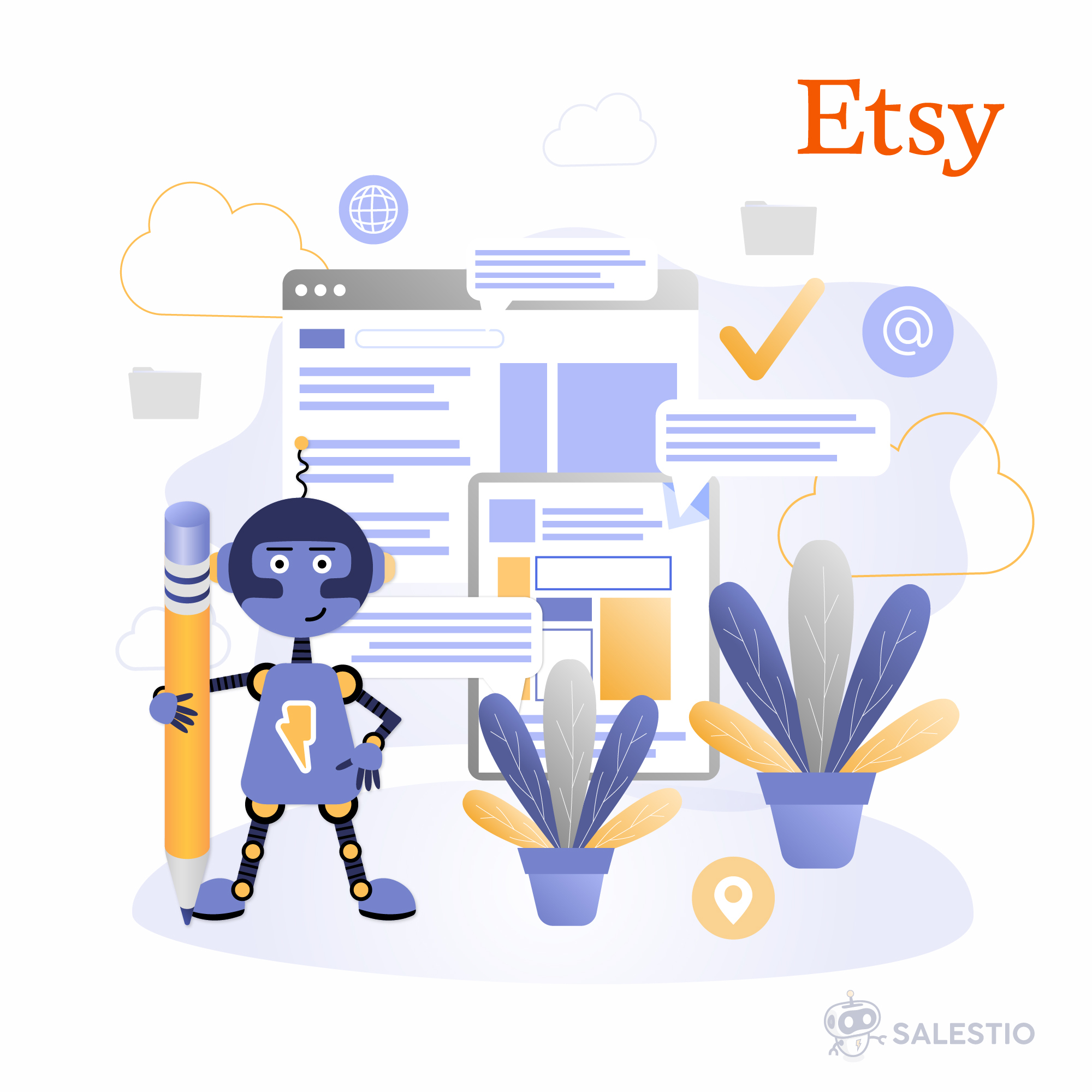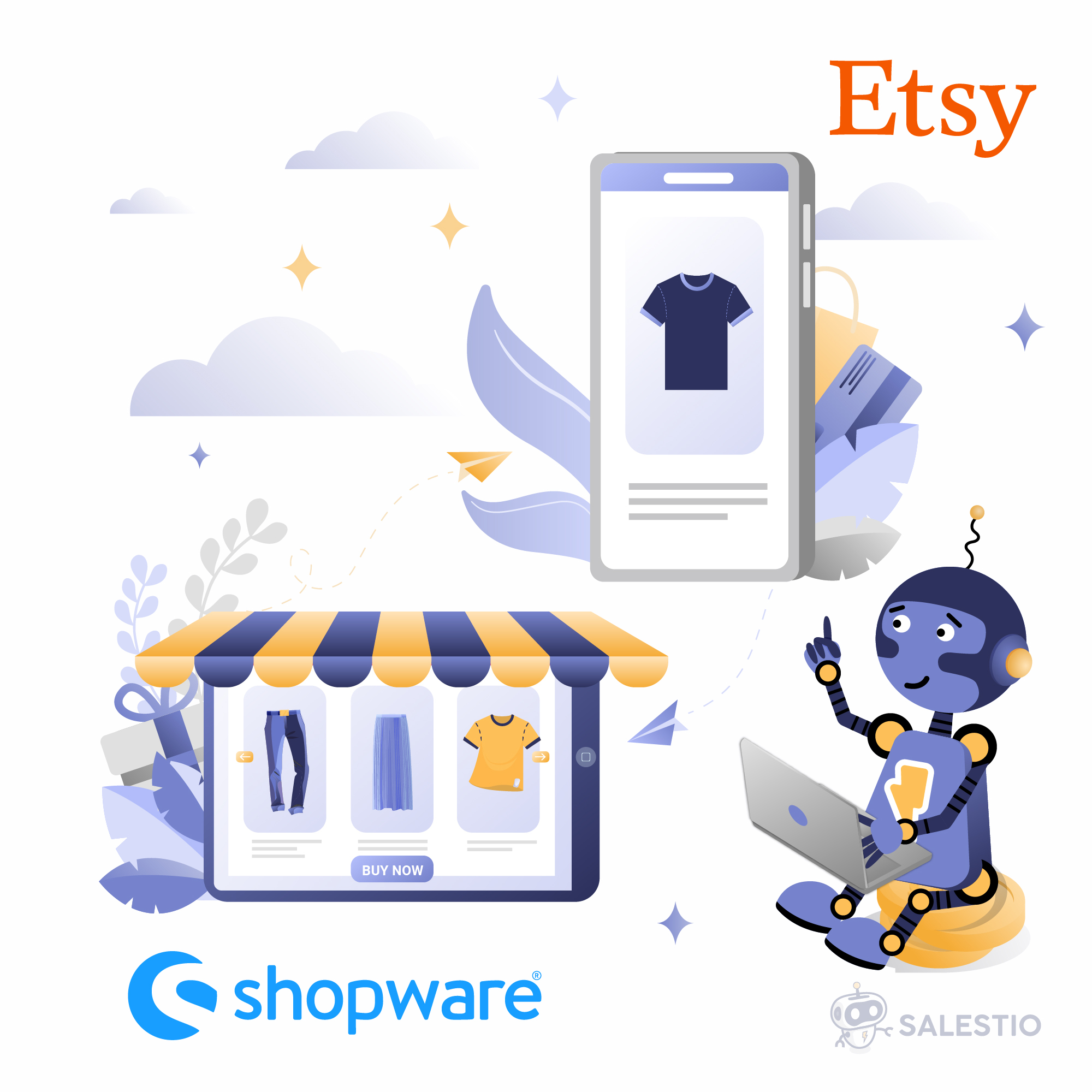20 Feb'26

What is new on marktplaces: Q1 2026
Online marketplaces are constantly changing and adapting. New features, requirements, and rules pop up all the time. Today, we will recap the updates from 2026 so far. Amazon All US sellers must use the Amazon Prepaid Return Label program for customer returns, starting February 8, 2026. The system is aimed at speeding up the refund […]
06 Feb'26

Selling Products view: manage products in Salestio
Salestio is introducing the Selling Products view for Shopify, where you can manage products from one page. If you have been using Salestio for some time, you might see it as an alternative to the Selling Lists, where you manage products in separate groups. The new view combines the products from different platforms, marketplaces, and […]
30 Jan'26

Salestio updates from January 2026
Our team is always working on the updates for the apps, so we want to keep you updated on the news. Today we have the first monthly update on the Salestio news. Salestio made it to the finals of ecommercegermanyawards.com! This time at the E-commerce Germany Awards 2026, our team competes in the “Multichannel & […]
23 Jan'26

Shopify Locations in Salestio
Shopify offers the option to manage the inventory in multiple Locations, such as warehouses or retail stores. Making use of the Location features is helpful if you want to track the inventories separately, lower fulfillment costs, and better navigate in multi-channel sales. Salestio offers multiple tools to integrate your Shopify Locations with online marketplaces. In […]
16 Jan'26

Custom requests in Salestio: how we adapt the app for your business
Salestio is designed to cover most cases out of the box and has plenty of features to help sellers with their specific setup. We understand that every business is different, so our team adjusts the app to fit your needs. Salestio has received multiple user-requested features over the years. In this article, we will share […]
09 Jan'26

Etsy Description Templates: Customize your listings with Salestio
Full and accurate descriptions play an important role in online sales. A lot of the time, shoppers learn the most about your product from the Etsy description. It is also one of the most important components to increase your search engine ranking. A description is required to publish a listing on Etsy. In Salestio, you […]
02 Jan'26

Salestio for BigCommerce: Settings Explained
Most of the features in Salestio work without the need to adjust the settings. In the Settings tab, you can configure the app to better fit your workflow. In this article, we will explain the available options and how they can help you customize the Salestio app. The Settings page in Salestio features tabs for […]
19 Dec'25

Salestio’s 2025 Year in Review
Happy holidays! Wishing you a holiday season filled with cozy moments and cherished memories 🥳December comes to an end, and it’s a good time to look back at what was new in Salestio over the past year. Throughout 2025, we introduced quite a few new features and improvements aimed at making the app more reliable […]
05 Dec'25

Link existing Etsy listings to Shopware products
If you have been actively selling on Etsy and now want to connect Shopware products to your Etsy inventory, Salestio has an easy way to do so. In this article, we will go over the process and explain the related customizations. Before proceeding with any of the steps below, connect the Etsy account to Salestio. […]
21 Nov'25

Best practices in email marketing for online sellers
Email marketing is one of the most effective tools that marketplace sellers can use to build customer loyalty. Sellers can focus on targeted messaging and turn simple emails into a powerful growth tool for boosting repeat purchases and standing out in the online space. In this article, we will focus on the key things to […]
- 1
- 2